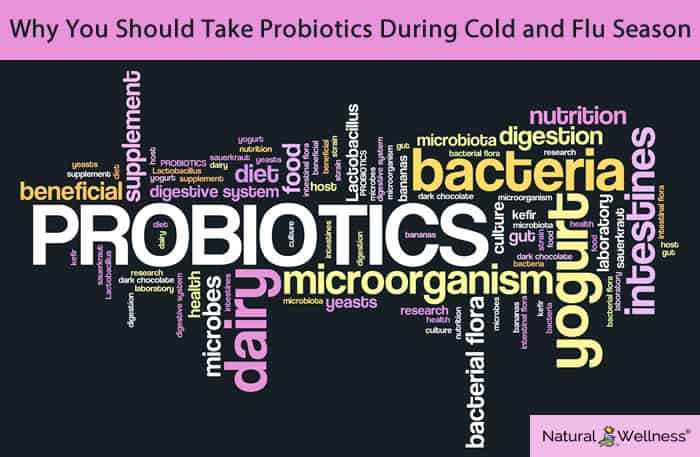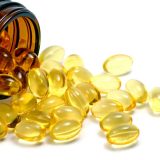

Researchers, physicians and health conscious Americans seem to be learning more about the potential health benefits of probiotic supplements. As such, it may come as no surprise that experts are now advising individuals to ingest probiotics as a potent prophylactic for the cold and flu season.
Probiotics and Immunity
Inside each of us there are an estimated 100 trillion bacteria, most of which reside in the gut. Probiotics are good microbes that inhabit the gut, contributing to a healthy gut flora.
Supported by scientific studies, advocates believe that probiotics play a pivotal role in our well being by:
- preventing the overgrowth of pathogens
- improving digestion and absorption
- helping synthesize Vitamin K
- maintaining the pH of the gut
- keeping the immune system properly challenged without being overwhelmed
Having an abundance of probiotic bacteria in the gut makes it harder for pathogenic bacteria to survive. Unfortunately, guts with a floral balance that has a preponderance of pathogens (like those associated with a cold or flu) over beneficial bacteria typically results in a greater vulnerability to infection and disease.
Probiotics help fight pathogens by several proposed mechanisms:
- When a pathogen enters the intestinal tract, good bacteria surround and work to neutralize it.
- Good bacteria form a barrier along the intestinal lining, which prevents pathogens from passing into the bloodstream.
- If the pathogen is able to gain entrance to the blood, good bacteria communicate with the immune system to launch an attack.
4 Studies Linking Probiotics with Cold/Flu Resistance
The theories described above are just short of proven facts, but clinical evidence supports the belief that probiotics help protect us from winter’s onslaught of colds and flus.
- Published in a 2009 edition of the journal Pediatrics, a research team from the U.S., China and Finland studied the effect of probiotics on cold and influenza-like symptom incidence and duration in healthy children aged three to five during the winter season. In their double-blind, placebo controlled study of over 300 children, the researchers found that probiotics reduced fever incidence by 53 to 72 percent, coughing incidence by 41 to 62 percent and runny nose incidence by 28 to 58 percent over placebo. In addition, they found that the probiotic group had statistically significant fewer antibiotic prescriptions and number of missed school days due to illness than the children taking a placebo. The researchers concluded that daily supplementation with specific probiotics seems to be a safe, effective winter prophylaxis against the common cold in healthy young children.
- Published in a 2011 edition of The International Journal of Sport Nutrition and Exercise Metabolism, British researchers examined the effects of a probiotic supplement during winter training in adults engaged in endurance-based physical activities on incidence of upper respiratory tract infections and immune markers. In this double-blind study, those who had ingested the probiotics had a statistically significant reduction in the frequency of upper respiratory infections.
- Published in a 2010 edition of the Journal of the American College of Nutrition, researchers investigated the effect of a fermented dairy product containing probiotics on common respiratory and gastrointestinal infections among shift workers (a group known to be immunocompromised). The researchers observed that the probiotic group had fewer cases of respiratory and gastrointestinal infections, a reduced fever duration due to infection, and fewer sick days.
- A 2014 study published in the Canadian Medical Association Journal explored the prevention and treatment of the common cold by reviewing the interventions that are effective for preventing the common cold , one of which was probiotics. It was noted that the “use of probiotics reduced antibiotic use.”
In addition to findings above, researchers found that probiotics increased the levels and activities of immune cells such as leukocytes, neutrophils and NK (natural killer) cells.
The four studies described above represent a small sample of trials concluding similarly, that probiotics help reduce the incidence, severity and duration of colds and flus.
Since the start of colder weather typically coincides with cold and flu season, a chill in the air is the best time to start fortifying the body. As such, supplementing with probiotics should be a part of everyone’s winter wellness plan to ward off – or at least minimize – the impact of the nasty bacteria and viruses lurking around.
Editor’s Note: Get the strongest probiotic protection possible with Ultra Probiotic Formula. Our Ultra Probiotic Formula has 35 billion living cells per capsule, featuring 8 probiotic strains from Danisco, a world leader in probiotic research and manufacturing. This makes it a very powerful, high-potency formula. Ultra Probiotic Formula helps to quickly restore healthy levels of beneficial bacteria in your stomach and intestines. It can effectively alleviate and prevent serious gastrointestinal and immune conditions and/or help support long-term intestinal health, in both your small and large intestines, and protect against liver fat accumulation. Learn more.




